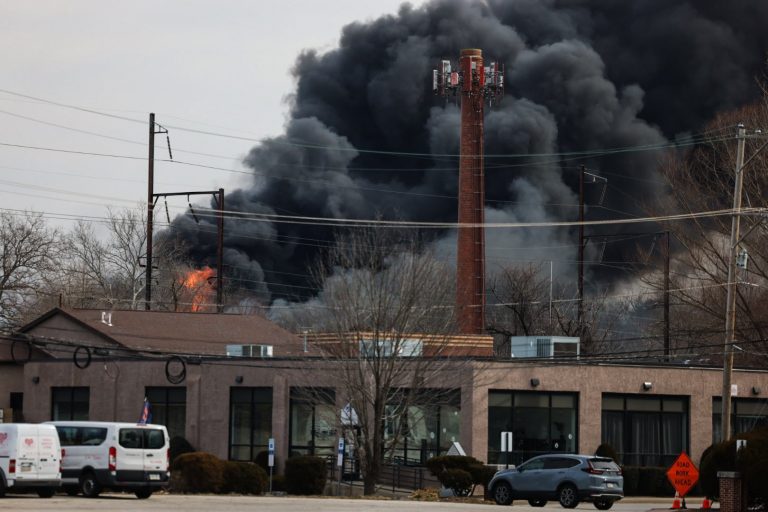What is the impact of the SPS Technologies fire on transit, schools and air quality?
SEPTA has suspended service on three Regional Rail Lines including Lansdale/Doylestown, Warminster and West Trenton. The Abington School District, Cheltenham School District, Jenkintown School District and all nearby private schools are closed.
Abington and Jenkintown school districts will remain closed Wednesday.
In a post on X, Gov. Josh Shapiro said the Pennsylvania Department of Environmental Protection is on the scene with local hazmat teams monitoring any threats to the public. Drinking water has not been impacted.
A spokesperson for the DEP said the state agency is “working with local hazmat teams to monitor air quality, water runoff, and hazardous materials for public health risks.” The agency told residents to follow local authorities, including the Abington Police Department, for updates and instructions.
“We are confident that most if not all the runoff is held on site in retention basins and in holding tanks,” Abington Fire Company Chief Mike Jones said at the press conference. “The floor drains in the chemical areas drain into those tanks. So the cricks and the water supplies around the site are not affected.”
Emergency agencies from Abington, Cheltenham and Jenkintown are coordinating with regional support from the Bucks, Chester and Montgomery counties. Aqua and SEPTA are assisting with response efforts as well.
“Air monitoring will continue throughout the day and no concerns have been detected thus far,” Montgomery County Commissioner Jamila Winder said at Tuesday’s “State of the County” address.
Coryn Wolk, a PhD student at University of Delaware who researches industrial disasters and governance, said she is concerned that officials are not communicating with the public what chemicals they are testing for and where they are testing.
“For the people who received [the shelter in place order], were they given any instructions besides stay inside. Like, you know, turning off intake vents? If they needed to go outside, what should they do?’” Wolk said.
Residents under evacuation orders should be instructed about whether they need respiratory protection, Wolk said. She is also concerned about the guidance evacuees will receive when they return to the area regarding cleaning their cars or homes of ash that could have toxic chemical contamination.
“If you have a toddler and they’re touching the side of the car, the minimum, kind of safe dose for a lot of these [chemicals] on their own is very, very low,” she said. “So it wouldn’t take much to have a harmful dose from exposure to stuff in your yard, your kid touching the car and then touching their mouth. And I know they don’t want to cause fear or panic or whatever, but the answer to that is not to just give no information or assume that things are going to be fine.”




